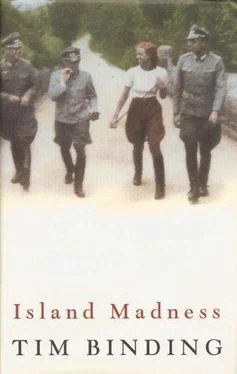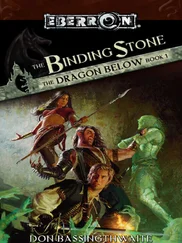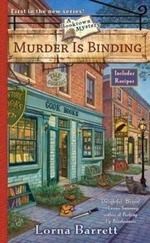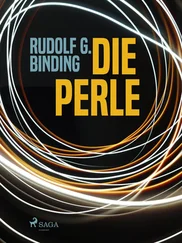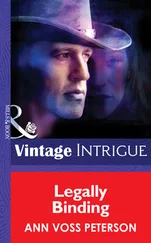“God Save the King!”
“In future,” the Captain said to Molly, in a tone designed to be overheard, “if people can’t behave themselves, we shall have to insist that such events be conducted after curfew.”
Ned stepped forward.
“All right,” he shouted. “That’s enough of that. Get off home before you land us all in trouble.” He turned and opened his hands.
“I’m sorry you had to go through that,” he said. “This is not the place to voice such feelings.”
“And another would be?” snapped the Captain.
Ned watched as Molly and the Captain hurried to their car.
“Perhaps we should not have been here at all,” the Major said. “Perhaps something simpler would have been more appropriate. But…” he directed his gaze to where Ernst was preparing to march off his men, “we had no choice. That is the trouble in war. Sometimes there is no choice but to do the wrong thing.”
“It’s not you they’re angry with,” Ned replied. “It’s their own kind they hate.”
“I suppose I should be grateful, then. It makes my job easier if they hate the likes of Molly more than the likes of me. Come back to the Villa? Have a glass of something warm, after the chili here.”
Ned looked at his watch.
“I must go. Paperwork.”
“Very well.” Lentsch was unnaturally formal. “There was one thing I should have told you. In the hue and cry it was overlooked. The lieutenant you wanted to interview. Lieutenant Schade.”
“You haven’t found him yet?”
“It appears that on that Saturday he got very drunk. First at the Casino, then later on in one of the…”
“Houses?” Ned suggested helpfully.
“Exactly. Over at St Sampson’s. He should not have been there. It is for enlisted men, but he was most persistent. There was a fight. Then it seems he went for more drinks, in the hotels along the promenade.”
“Are you saying that he hasn’t sobered up yet?”
“No, no. Early the next morning he was found in the foyer of the Soldatenheim. He told them he’d fallen down the steps and hurt his head. They thought he was just drunk you understand, a little shaky, his words all together…”
“Slurred.”
“Slurred. So they let him sleep. Sunday afternoon they tried to wake him. They could not. Coma. This morning he died.”
Ned felt himself grow cold. The Major tried to reassure him.
“I should have been told earlier. But with van Dielen’s disappearance, everyone forgot. This has nothing to do with Isobel, I am sure. The men involved in the fights will be disciplined but not charged. They were not serious. A blow to the face, a tooth loose. Brawling. The fall must have caused it. We do not wish to upset the family, so we will tell them that it was an accident.”
The Major walked away. Ned scoured the crowd for a sight of Veronica, but couldn’t see her. Perhaps she hadn’t come after all. Down by the car his mother was talking to Albert. He had a hand on her shoulder and was trying to put something in the calico bag she was carrying. Two times she waved the bag aside but at the third he grabbed it and thrust in his hand. She stood up on tiptoe and gave him a kiss. Albert climbed in the driver’s seat. His mother waved, then gave a little curtsy to Mrs Hallivand as the car drove off.
“What was all that about,” he said, coming up behind her.
His mother patted her handbag. “It’s a surprise,” she said.
He held her out at arm’s length.
“You look nice, Mum.”
“You’re just saying that.”
“I’m not! You do.”
He took her arm and walked her down the road. Halfway down the hill he stopped and wheeling her round kissed her on the cheek. His mother looked round, flustered. A couple of women walked past, grinning.
“Ned Luscombe, what do you think you’re doing!”
“I’m taking my mum in my arms, that’s what I’m doing.”
“I never saw such a thing. Put me down at once.” She pulled herself back, straightening her coat. “What would your father have said?”
“We’ll never know, will we.” He hugged her again. “And next time I see her I’m going to put my arms around Veronica.”
“Oh, it’s Veronica again, is it?”
“No, it isn’t, but sometimes I wish it was. She was right for me. I was right for her. I should have left it at that.”
“You’ve been drinking.”
“So I have. All morning, as a matter of fact.”
“Drowning your sorrows, I don’t doubt. If there’s one thing I can’t abide it’s a man feeling sorry for himself.”
“It’s V I feel sorry for, letting her go like that.”
“Yes, and look at her now.”
“I helped put her there, Mum. She would have been safe if I’d done right by her.”
“She’s a free woman.”
“No one here’s free, Mum. Not you, not me, not V, not even Uncle Albert.”
Ned walked back to the office. The whole affair had gone badly. The town had been out in force, their sympathy tainted by curiosity and loathing. Their true feelings regarding the Occupation, kept simmering for these two and three-quarter years under a lid fashioned from the base metals of obedience and opportunism, had broken out into the air like thick, sulphurous fumes bubbling up from some dark and murky pool. It was not simply bottled resentment which had fuelled their anger. In the shabby folds of their funeral clothes, mingling with the smell of mothballs and camphor sticks, hung the noxious fiimes of self-loathing. He had sniffed it wafting in and out of the gravestones like a sea mist rolling in and out of the rocks, ready to lead them all to grief. And when the sudden squall that the sky had promised finally descended, it washed into the very pores of their skin as quickly as the poison gas that everyone believed to be stored in Alderney. It was a dangerous and intoxicating chemical the islanders had inhaled that afternoon.
He sat down and idly opened the drawer, remembering suddenly what was inside. Until Lentsch had spoken to him he had quite forgotten about the man. That’s how good a detective he was. And now he was dead, his head cracked open by the hands of a British policeman. A legitimate act of war or an act of criminality? He picked up the wallet, opened the fold and laid the money out on the table. More than a Lieutenant’s wages, unless he hadn’t spent any money for six months.
He held open the rest of the wallet and shook out the contents. Identity card, driver’s pass, a Lloyd’s chequebook, tide tables, a letter from home, the postmark smudged and indecipherable. Inside three closely written pages, whether wife, mother, brother or father, Ned had no idea. There were photographs, too: one of a good-looking woman of about fifty, holding a white lapdog: another of a young man in a ill-fitting suit, a Homburg raised above his head, and the last, a skinny girl in a summer dress standing astride a bicycle, a sweetheart no doubt, in a sweetheart’s pose and a sweetheart’s hopeful smile on her face. Ned felt helpless in the face of such photographs. Did they know, this man, these women, that their beloved Schade was dead, that he had lost his life pushed down some pointless steps? What would they think about the war then, these people, so content, so happy? What use were pictures, except to wound and hurt? Photographs told you nothing except that you were for ever alone, for ever transient, for ever to be betrayed by those who had held you closest, for ever to betray in turn those who hold you most dear.
As he replaced the letter he discovered an extra flap running the whole length of the wallet’s back, protected by a small lip of leather tucked into the right-hand side. He put his hand in. More photographs. He laid them out on the table.
Though he understood what he saw, to begin with they were recognizable only as blurred mementoes of a soldier’s masturbatory life; women spread out to enliven the bored bunk hours or passed around the mess room to a chorus of obscene jokes and merry gestures. Then as he looked closer he realized that not all the photographs were of strangers. Some were of a woman he knew, and a place he knew too, though which he had recognized first, the low curved ceiling and the open iron door of the escape shaft or the fleshy arms and the shock of tumbling hair of its occupant he could not say. She was smiling at the camera, as naked as the night she had slipped into the summer sea with him and Bernie egging her on, but here her podgy arm was wrapped around Lieutenant Schade’s broad shoulders and the two of them were lying back on a bed of straw. That was how Isobel had come to have straw in her hair. Not from a farm vehicle, not from a stable, but from the tunnel itself.
Читать дальше
